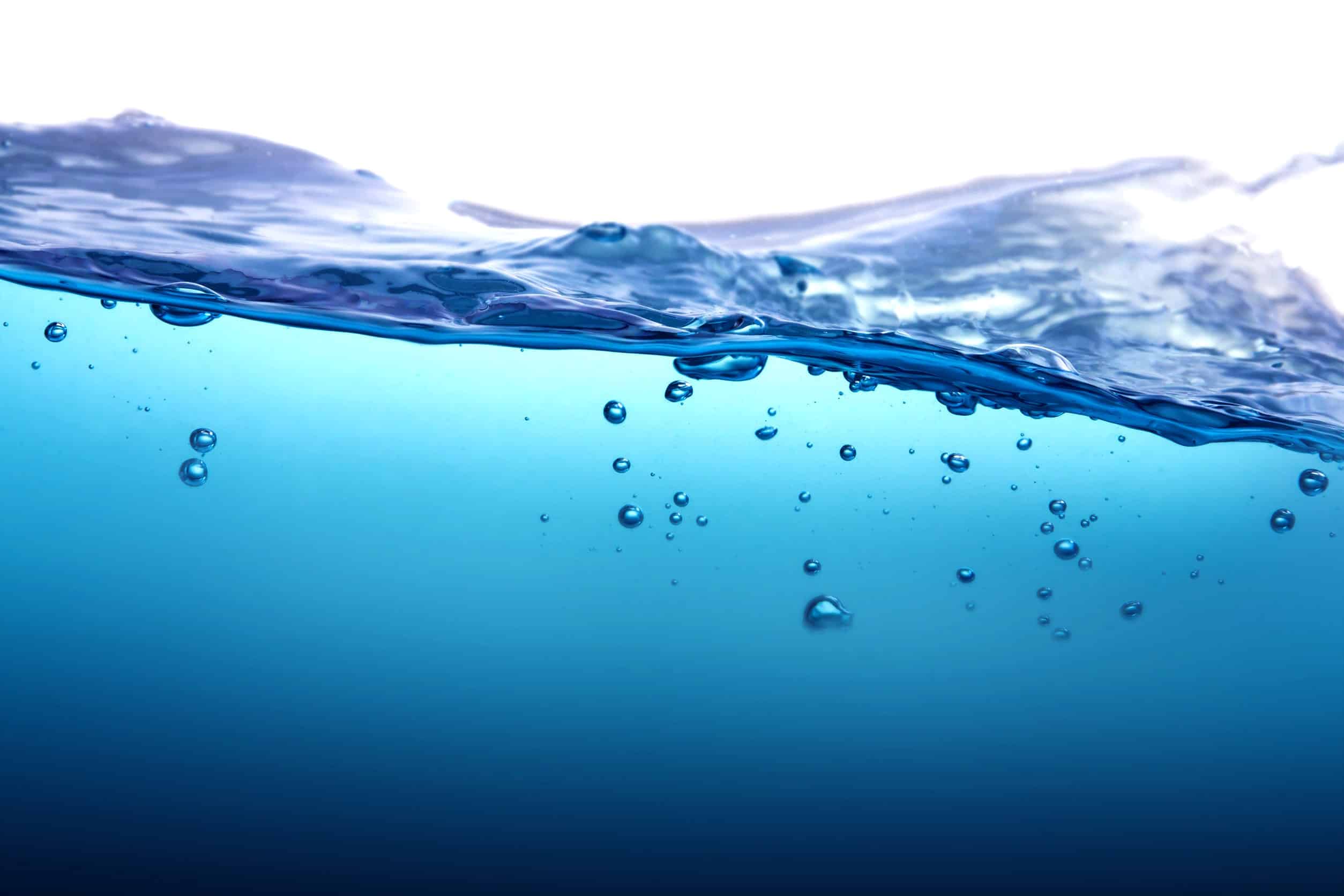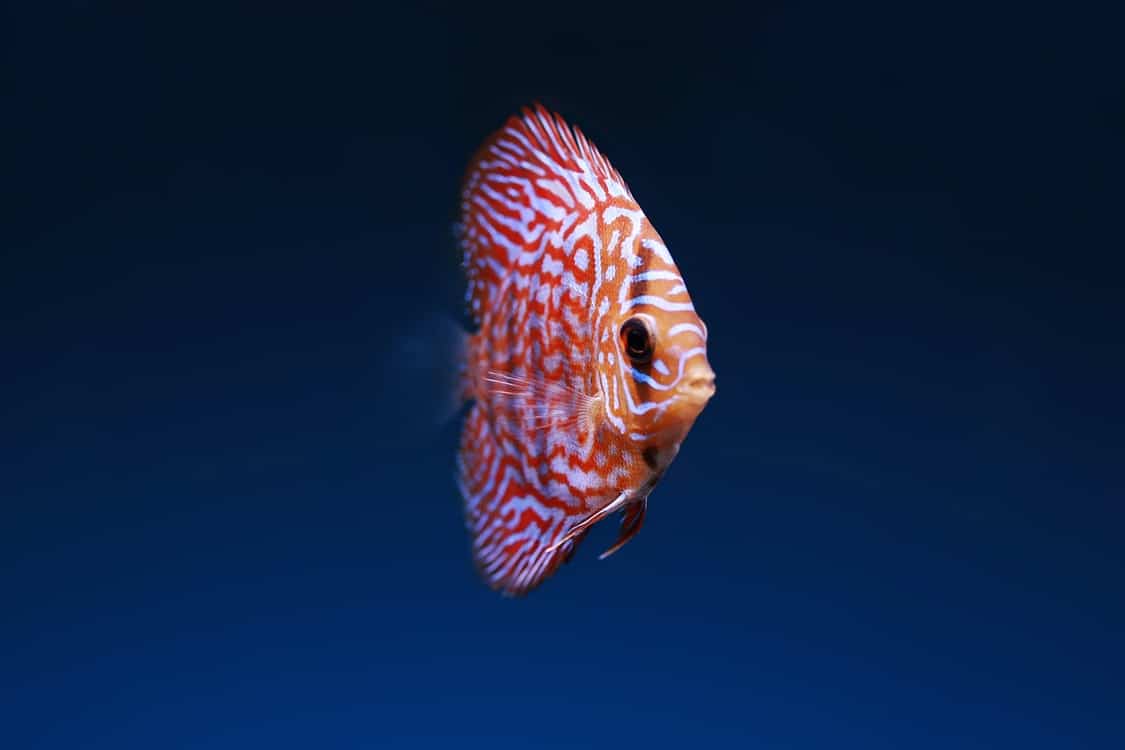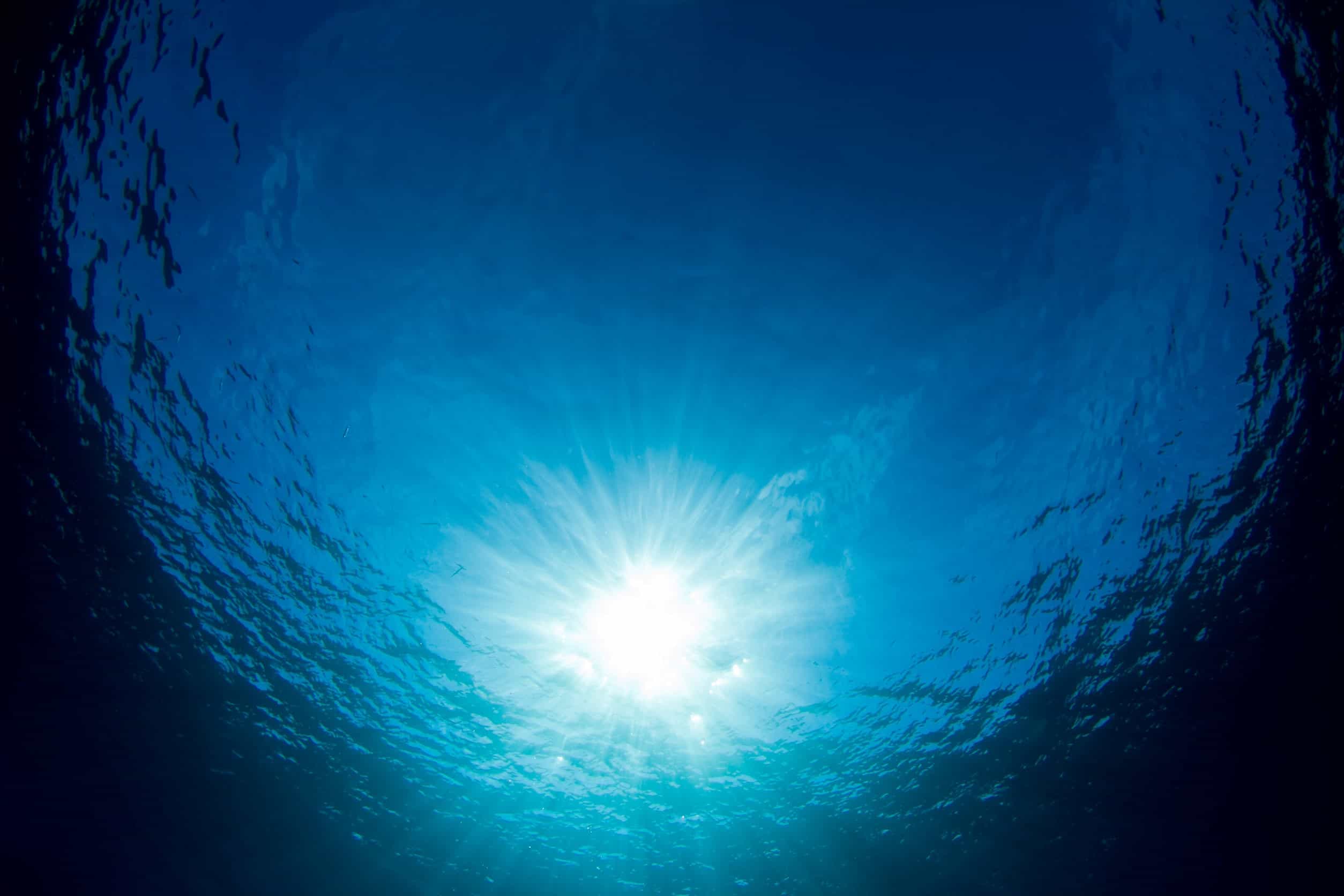Water makes up nearly three-quarters of the world’s surface. It’s generally hard to miss for us, but that may not be the case for the aquatic side of life. Can fish see water, or is it just an invisible part of their world like air is for us?
The answer is a bit complicated. Water is invisible, so fish can’t see it. What they can perceive is contrast, which comes either from refracting light or certain particulates in the water.
Even though they can perceive it, their brains filter out this information. It’s unchanging and irrelevant to their lives, so it ends up unconsciously disregarded. For better understanding, this works off the same psychological principle that keeps people from seeing their own noses. And no, fish can’t see air – its refraction index value is far too low for that.
The answer behind what they see comes from an unexpected combination of physics and psychology. Just read below to understand how these surprising fields interact.
Water Visibility (Physics)

Water by itself is clear, colorless, and impossible to spot. We can only notice the contrast it has between other items such as containers, contaminants, and even air. This leads to a mismatch in how the lighting is angled, and the area where that’s visible defines the border of your water.
Think of it like a pane of glass, with the image inside and outside of the frame not quite matching up. This creates a perceivable distortion in our minds despite the lack of color to cue us in.
Water, however, is rarely by itself. Where fish dwell, it’s usually filled with algae, detritus, pollutants, and other particulates that have higher refraction index values than the water they’re inside. This in turn ups its refractive index value and visibility, even below the water’s surface.
Light Refraction Index

The refraction index is a metric used to gauge how much light is “bent” while passing through certain materials. For water, that value is 1.3. It’s not very high, but water often has different components that increase this value. For fish, this renders the water they dwell in visible.
So yes, fish can see the water they’re in, but simply choose not to. Rather, their unconscious brain makes that decision for them. The reason for this is a bit more psychological than most would expect – in fact, this phenomenon affects humans too!
Why Can’t Fish See It? (Psychology)

Simply put, it’s because they see it all the time. Brains are wired towards survival, and non-essential functions are shut down when unnecessary. To prevent oversaturation from stimuli, the brain disregards inputs that don’t change. This principle applies to both animals and people.
Environmental clutter is filtered out over time, but that depends on what type of clutter they experience most. The water most fish abide in is chock full of detritus, algae, and waste products. A fish living in those saturated waters wouldn’t blink twice, while a migrating fish from clearer places would perceive a marked change in their area.
There’s also a quirk in the system at play. Fish can’t perceive the water in their immediate vicinity but can interpret the blueness of its color over distance. This is again due to unimportant information being disregarded. The color is actually relevant to their needs, as it helps them identify scenery and other fish thanks to the color variance.
How Does This Phenomena Manifest in Humans?
This might come as a surprise, but there are plenty of inputs our senses downplay or mute altogether. Why a fish can’t see the water could best be related to how we can’t see our own noses. It’s literally right in front of us, and yet the image is filtered out so well by our brains. Even crossing our eyes just leads to a blurred image, no matter how much we focus.
Since these inputs don’t cue anything else, they don’t warrant attention. If it’s not critical to immediate self-preservation or personal gain, the brain considers it unimportant. This principle is responsible for fish disregarding the water around them as a relevant input. They don’t help them survive, so their brains don’t bother processing the unchanging stimuli on a constant basis.
What About Air?

Technically speaking, air is more “invisible” than water. Its refractive index value is much lower (1.00) and it’s less accommodating of contaminants that could sharpen this contrast.
On particularly warm days, air can be perceived wafting off hot objects. Light doesn’t pass through objects at the same speed, and temperature can make minute alterations to its direction.
That is, however, the only exception. The normal air in the environment is just as invisible to fish as it is to us. Fish can only see the boundary between air and the water’s surface. As you can see from the picture above, even that can be hard to make out.
What Would a Fish See?
The eyes of a fish are adapted to water. They have protective films over their eyes to handle water pressure better. Humans get binocular vision, which gives improved depth perception. They’re largely the same outside of these modest difference.
You can get a decent approximation of what a fish might see simply by open your eyes while under a pool. You can’t quite “see” the water, but you can make out the boundaries where the light refracts. Your brain also filters out the water in your immediate vicinity due to its irrelevance, which is pretty similar to how it is for fish.
Final Thoughts
Fish can see water, but unconsciously choose not to. It doesn’t help them in any way, so their minds disregard it. They have more important things to do, like hunting for food or escaping predators. You can get a decent idea of what they’d see by opening your eyes in a pool.

